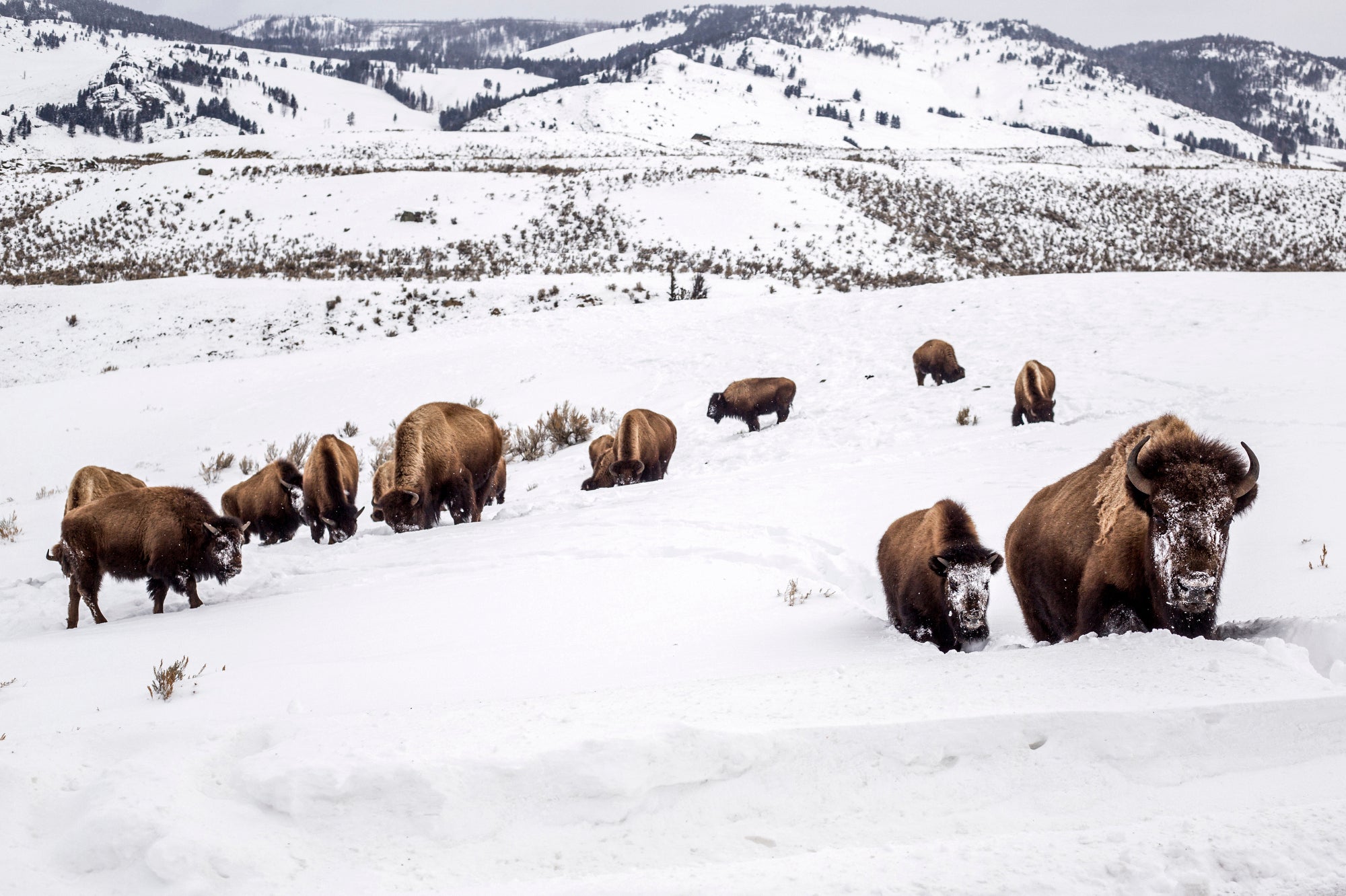Yellowstone bison species decision questioned by US judge
A federal judge has ordered the U.S. Fish and Wildlife Service to revisit part of its decision not to protect Yellowstone National Park’s bison as an endangered species

Your support helps us to tell the story
From reproductive rights to climate change to Big Tech, The Independent is on the ground when the story is developing. Whether it's investigating the financials of Elon Musk's pro-Trump PAC or producing our latest documentary, 'The A Word', which shines a light on the American women fighting for reproductive rights, we know how important it is to parse out the facts from the messaging.
At such a critical moment in US history, we need reporters on the ground. Your donation allows us to keep sending journalists to speak to both sides of the story.
The Independent is trusted by Americans across the entire political spectrum. And unlike many other quality news outlets, we choose not to lock Americans out of our reporting and analysis with paywalls. We believe quality journalism should be available to everyone, paid for by those who can afford it.
Your support makes all the difference.A federal judge has ordered the U.S. Fish and Wildlife Service to revisit part of its decision not to protect Yellowstone National Park’s bison as an endangered species.
The Buffalo Field Campaign and Western Watersheds Project groups have been fighting since 2014 to have Yellowstone’s bison declared endangered or threatened under the Endangered Species Act.
They have argued that two separate groups of bison in the park are genetically distinct. Rather than set a population limit of 3,000 animals for the entire park, they said, the limit should be 3,000 for each herd, or 6,000 overall.
The Fish and Wildlife Service, citing a different study, has argued that the herds are not genetically distinct and rejected the listing petition in 2019, the Billings Gazette reported.
The federal agency failed to articulate why it chose one study over the other, District of Columbia U.S. District Judge Randolph D. Moss wrote in an opinion last week.
Moss set no deadline for the Fish and Wildlife Service to respond but will require both sides to update the court on the case within 90 days.